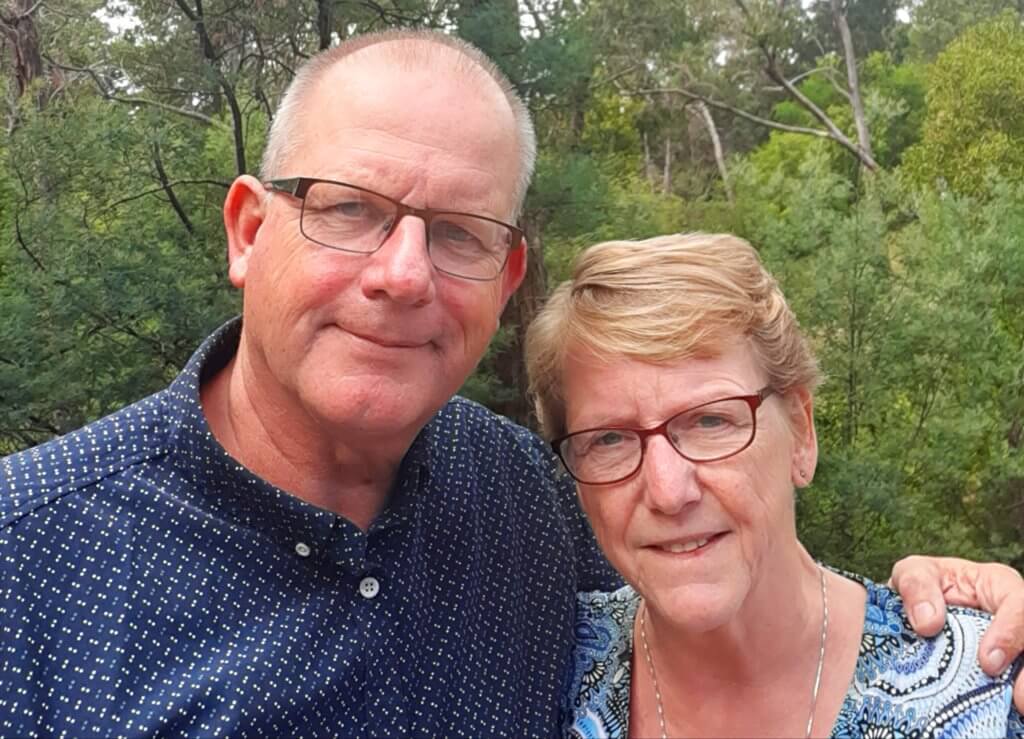 My wife, Jeannette and I were born and grew up in the Netherlands. As a young businessman and newly married, Jeannette and I immigrated to Melbourne, Australia where we made our home, raised three children and built a thriving automotive business. Being active believers in the Lordship of Christ, we were ready to serve others with the blessings we had received.
My wife, Jeannette and I were born and grew up in the Netherlands. As a young businessman and newly married, Jeannette and I immigrated to Melbourne, Australia where we made our home, raised three children and built a thriving automotive business. Being active believers in the Lordship of Christ, we were ready to serve others with the blessings we had received.
After the fall of the Soviet Union, God gave me a burden to help bring the Gospel in person to the Russian people. Our church leadership came behind us and supported our call.
I had heard about The Bridge Int’l, so in 1997, I visited their Dutch office in Amsterdam. Connections were made, and I was hired to serve as head of the Bridge Bible School in St. Petersburg, Russia while overseeing some of the young churches planted by the graduates from the school. In December, 1997, I moved with my family to Russia where we spent two years in St. Petersburg. At the end of 1999, we were called back to Australia. We did not want to leave, but there was absolutely no doubt that God had called us home. We were sad, but we obeyed.
Back home, we are part of a thriving local church, Care Force Church, Mt. Evelyn, which has a clear vision for world missions. Our leaders were happy at our homecoming and asked us to serve in India, where our church already had a very large church planting mission. We loved it, but the love and burden for the Russian people were still in our hearts and prayers.
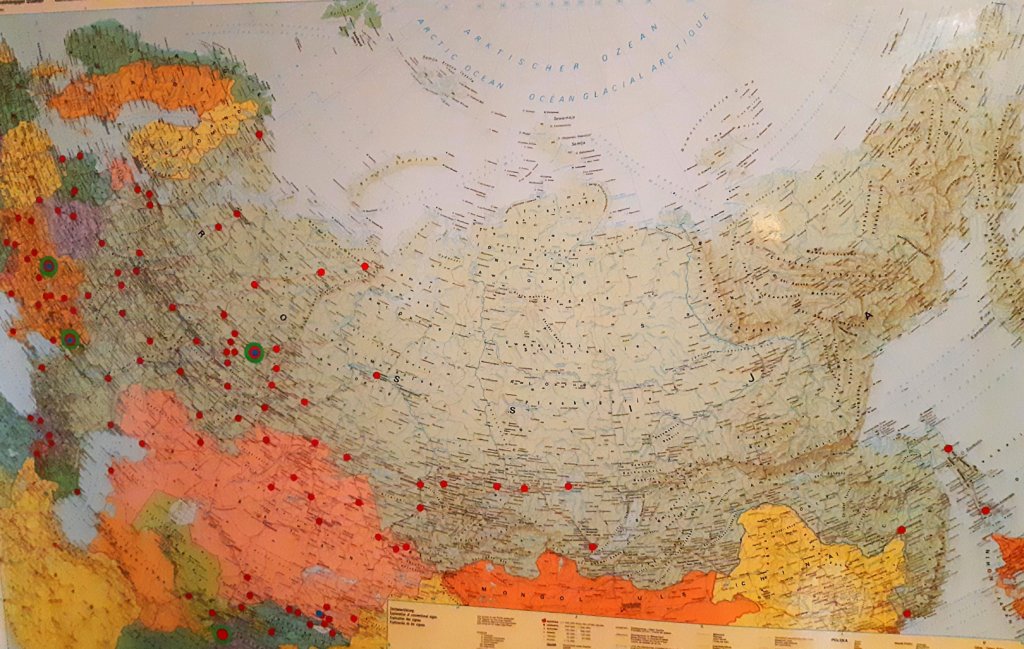 In 2001 God showed me a vision: A large map of the whole former Soviet Union while a finger appeared and drew a big circle on the map. All five …stan countries of Central Asia and a very large chunk of Russia were in this circle. Our church blessed us to return and pioneer something very new: A healing ministry based on the work of our senior pastor at the time. See: https://www.careforcelifekeys.org/default.as
In 2001 God showed me a vision: A large map of the whole former Soviet Union while a finger appeared and drew a big circle on the map. All five …stan countries of Central Asia and a very large chunk of Russia were in this circle. Our church blessed us to return and pioneer something very new: A healing ministry based on the work of our senior pastor at the time. See: https://www.careforcelifekeys.org/default.as
We translated the programs and started training Facilitators in seven countries, Russia being the main one. The word spread fast, so in 2004 we were approached by Ukraine. A major Evangelical Seminary in Kyiv soon after made the course a subject for three of their Bachelor classes.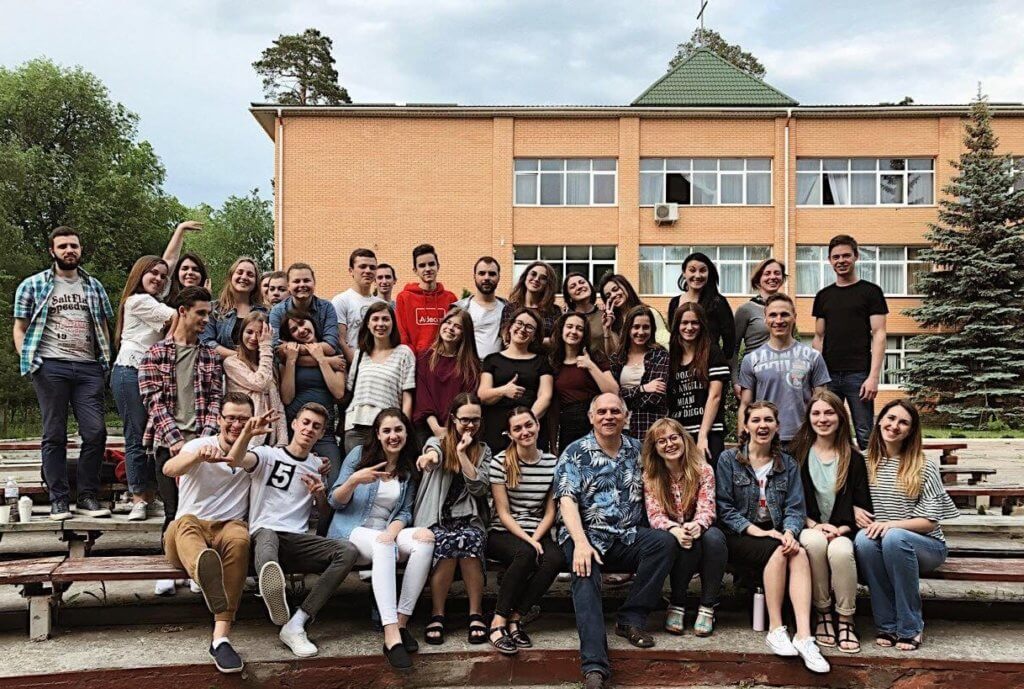
Since 1997 and Ukraine since 2004, till the end of 2019, we have been traveling every year on short term ministry trips to Russia while teaching and training church leaders and believers. Then, Covid-19 hit the world; Australia locked its borders. It shut down our travels abroad for two years which brings us to the present.
We are blessed to know and love so many Russians and Ukrainians across those two vast countries through our network of personal relationships which is a great tool in our current effort to help the victims of war from Ukraine. Right now, we are busy working on bringing several Ukrainian refugee families to Australia to stay with us to help them with a new start.
RUSSIANS AND UKRAINIANS — HOW HISTORY HAS SHAPED THEM DIFFERENTLY
Before year 1000, neither Russia nor Ukraine existed. Ukraine’s capitol, Kyiv (Kiev in English), however has a longer, rich, and often stormy history. There is archeologic evidence that various tribes and peoples have lived in that region since before time immemorial. The officially recognized year of the establishment of Kyiv as a city was in 487, so the Ukrainians celebrated its 1500 anniversary in 1982. Moscow was founded in 1147, 660 years later! Kyiv, located on the Dnieper River was an important stop on the trade routes by Slavic tribes and also for the Vikings who traded all the way south to Constantinople, as well as a connection point East-West via the Silk Road.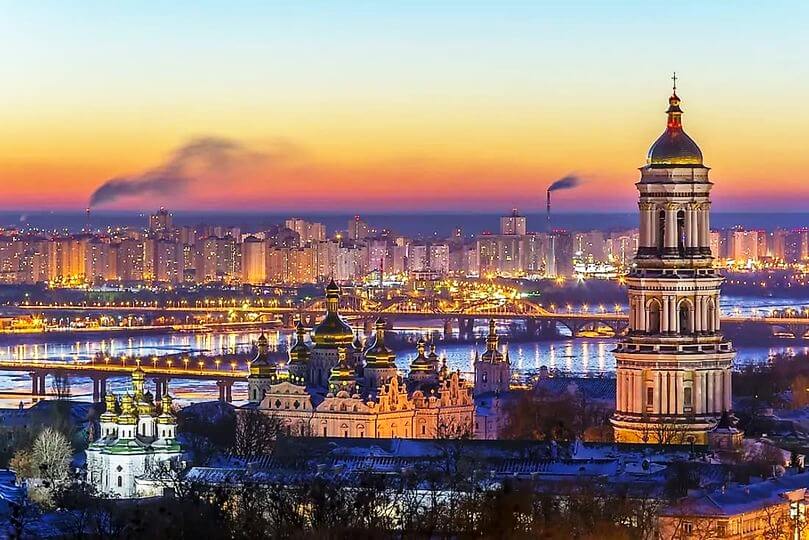
In 988, Vladimir of the Kingdom of Rus, a prince of Viking origin, having converted to the Christian faith, baptized the whole nation and established the Orthodox Church in Kyiv. By the 12th century Kyiv’s wealth and religious importance was demonstrated by its more than 400 churches, some of them are still beautifying the city by their craftmanship and splendor.
In the mid-1200, the Mongols invaded Moscow and Kyiv and destroyed them both by fire. Throughout the next centuries there were numerous wars and struggles for power between princes — Lithuanians, Prussians, Poles, Ottomans and Russians. In 1326, Russia moved the seat and Patriarchy of the Orthodox Church from Kyiv to Moscow, which after the fall of Constantinople to the Turks, was named the Third Rome.
In 1547, Ivan the Terrible was the first proclaimed ”Czar and grand prince of all Russia.” Through marriage, he marked the beginning of the Romanov Dynasty which lasted till the end of World War I, when the last Czar Nicholas II abdicated and subsequently was killed by the revolutionary Bolsheviks. From 1917 till 1922 civil war broke out in the Russian Empire, commonly known as the Russian Revolution which ended with the formation of the Marxist communist based Soviet Union, consisting of 12 republics, including Ukraine
From 1930-32, Stalin aggressively pursued collectivization of the rich farmland of Ukraine. When the farmers resisted, the Soviet Union caused the death of 5 million peasants by starvation (Holodomor). It is today recognized as purposeful genocide.
Less than 20 years later, Hitler invaded Ukraine. This was seen as an opportunity by Ukrainians to break away from the yoke of the Soviet Union, so many sided with Hitler. But, in 1943-44 Stalin returned with his army and subjugated them, again. Many Ukrainians were shot, being suspected of working for Germany. Stalin never forgave Ukraine for breaking loyalty to the “motherland” which made him inflict much suffering on the people.
In 1940, the three Baltic States were annexed, totaling 15 Soviet republics. Nikita Khrushchev, a native born Ukrainian, followed Stalin. In 1954, he annexed Crimea from the Russian into the Ukrainian Republic of the Soviet Union. All these conflicts and wars caused many changes and shifting of boundaries, especially to the borders of Ukraine and shaped culture, language and the Russian and Ukrainian peoples very differently.
Generally speaking, Russians are very fatalistic in their thinking. Ukrainians are go getters. Most successful ministries we have seen in Russia were started and/or are run by Ukrainians or Belarussians. Why: One of the advertising slogans of LifeKeys is: “Life can be better!” An average Russian will respond to that: “No life has always been bad, it is bad now and it will always be bad.” Say the same to a Ukrainian and the response will be something like: “O yeah? Show me how!” This will affect the way they read the Bible, the way they respond to tragedy, the way they respond to Grace, the way they see God as Father, also how they respond to propaganda.
We experienced this first hand in 1999. Our family lived with the Bridge Bible school students in a large home in the outskirts of St. Petersburg. The war was raging in the Balkans. One day the Chinese Embassy in Belgrade Serbia was bombed by NATO forces. Serbia of course was a staunch ally of Russia at the time. All the students watched the Russian TV report after dinner, which was brought in the old Soviet war propaganda style. In an instant, the spiritual atmosphere at the school changed. The Russian students, including our interpreter, became instantly fatalistic about what this event would mean for life and became very downcast. The three Belarussian students took it very differently. They did not become downcast but rather tried to encourage the Russians. It took two weeks to get back to our normal daily routine.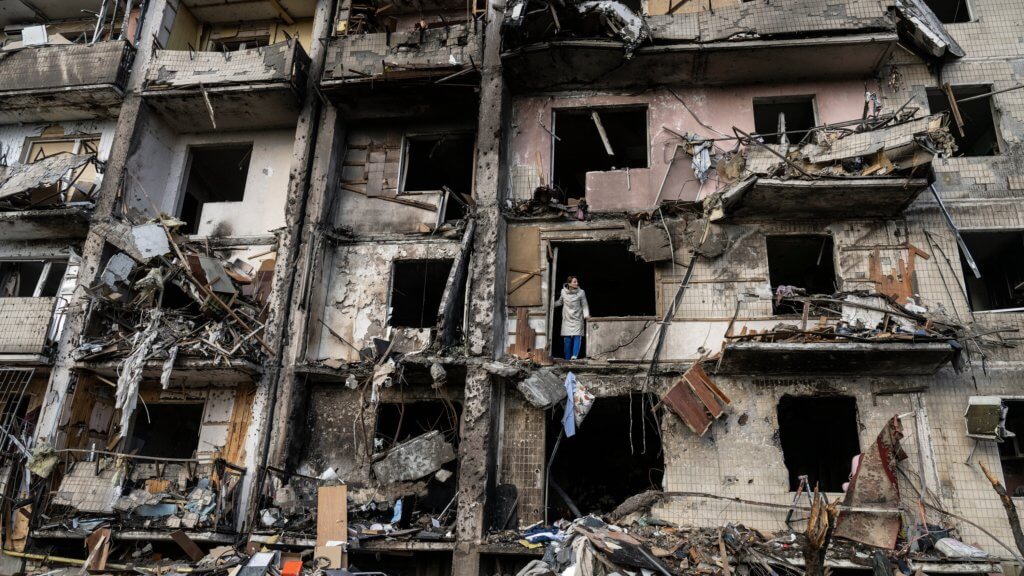
Putin has expressed that the collapse of the Soviet Union is one of the biggest disasters in history! This view is not shared by the other 14 republics, definitely not Ukraine.
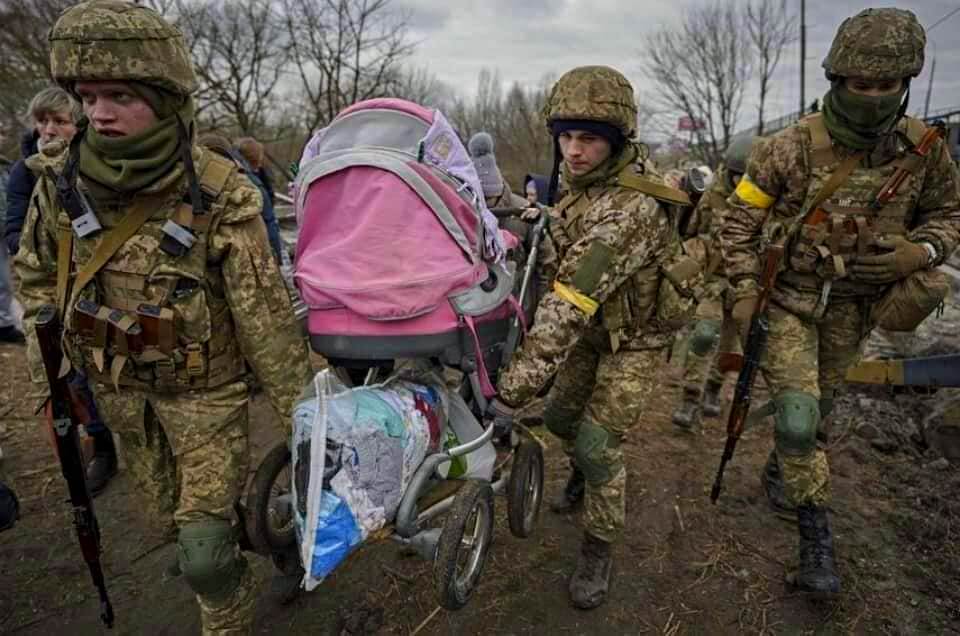 We have hundreds of great ministry friends in Russia as well as in Ukraine. We find that, since 2014, it has been nearly impossible to talk with many of our Russian friends about the Ukrainian situation as they are ignorant about the reality on the ground in the country. The reason is that factual news in Russia are carefully controlled and being blocked by the government in favor of their propaganda and disinformation.
We have hundreds of great ministry friends in Russia as well as in Ukraine. We find that, since 2014, it has been nearly impossible to talk with many of our Russian friends about the Ukrainian situation as they are ignorant about the reality on the ground in the country. The reason is that factual news in Russia are carefully controlled and being blocked by the government in favor of their propaganda and disinformation.
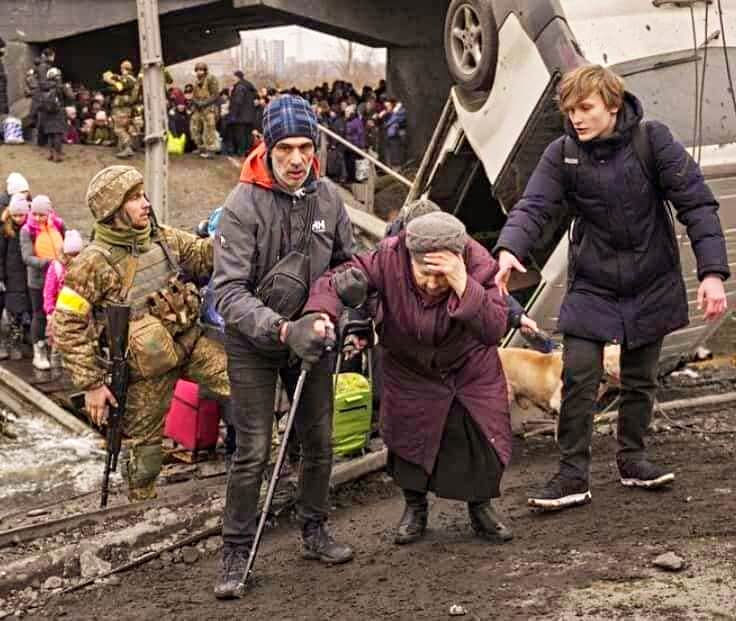 Many Russians living in Ukraine are unable to convey to their relatives back in their homeland that there even is a war Ukraine—they are simply not being believed! The general consensus by the public in Russia is that Putin’s invasion is a “Geopolitical Problem”, and with that, totally ignoring the loss of life and the suffering of the people, due to a war that was started by Russia (in my opinion) in 2014. The 2022 war is a continuation and escalation of the same conflict which now is a full scale invasion.
Many Russians living in Ukraine are unable to convey to their relatives back in their homeland that there even is a war Ukraine—they are simply not being believed! The general consensus by the public in Russia is that Putin’s invasion is a “Geopolitical Problem”, and with that, totally ignoring the loss of life and the suffering of the people, due to a war that was started by Russia (in my opinion) in 2014. The 2022 war is a continuation and escalation of the same conflict which now is a full scale invasion.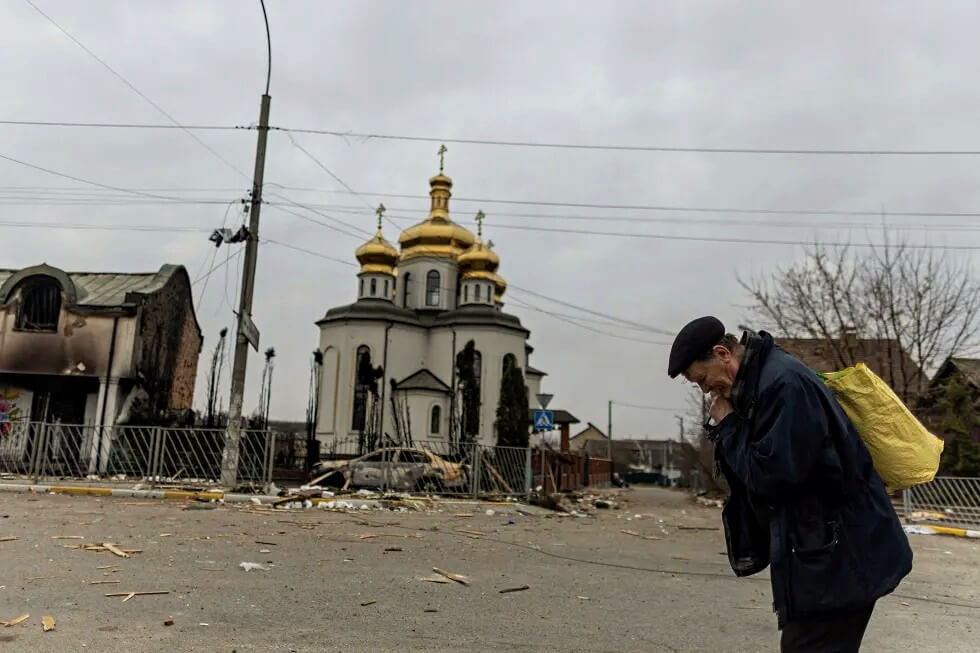 My problem is not with the Russian people, as they are victims, as well. This is not their war, it is a war waged by Putin’s evil regime.
My problem is not with the Russian people, as they are victims, as well. This is not their war, it is a war waged by Putin’s evil regime.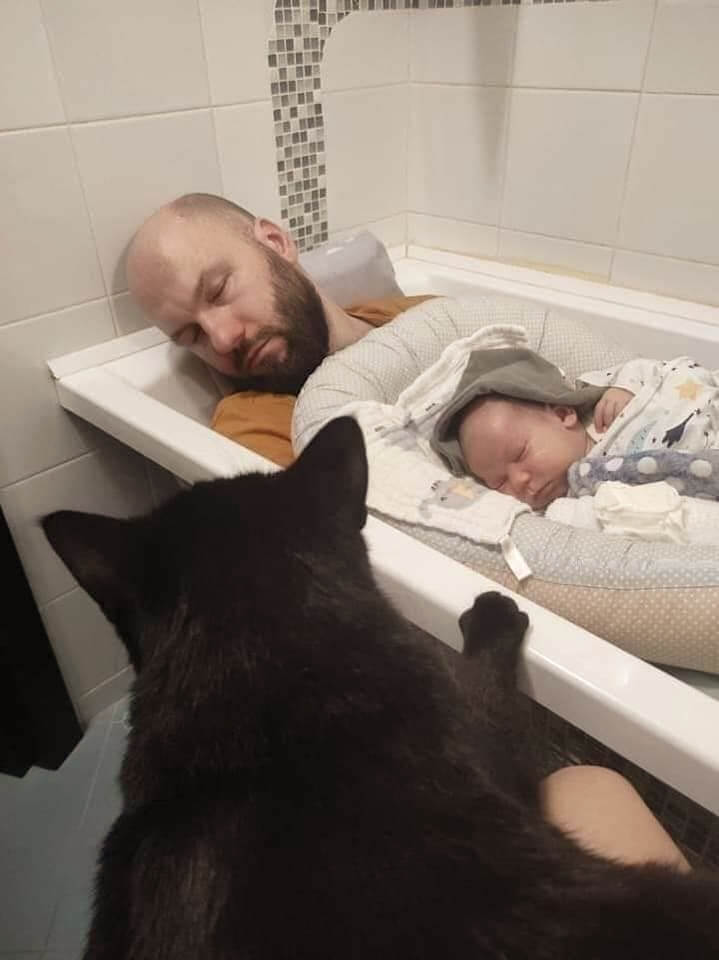
We are directly in touch with many of our Ukrainian friends & have received many eyewitness statements from so many on the ground fleeing the atrocities. The suffering is real! Our hearts and prayers are with them. We have decided to help as many as we can.

FROM R.K.’S CORNER
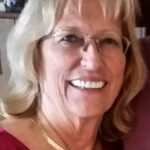 The Bridge had a large presence in Russia in the 90ties through evangelistic outreaches, Bible schools and church plantings, but we were not directly involved in Ukraine. Last month, when Putin with his Russian war machine invaded Ukraine, I wanted to give a perspective on the situation beyond the partisan news of the mainstream media by a outsider who knows the inside. I contacted our friend and former ministry partner in Russia, Roedie Rap from Australia. For 25 years, he and his family have been actively and broadly engaged in Bible based teaching and mentoring both in Russia and Ukraine.
The Bridge had a large presence in Russia in the 90ties through evangelistic outreaches, Bible schools and church plantings, but we were not directly involved in Ukraine. Last month, when Putin with his Russian war machine invaded Ukraine, I wanted to give a perspective on the situation beyond the partisan news of the mainstream media by a outsider who knows the inside. I contacted our friend and former ministry partner in Russia, Roedie Rap from Australia. For 25 years, he and his family have been actively and broadly engaged in Bible based teaching and mentoring both in Russia and Ukraine.
To better understand the issues of the present, it is important to understand the past. Roedie shares his testimony, gives you a brief historic account of the two nations, and then expresses his views on the present conflict.
